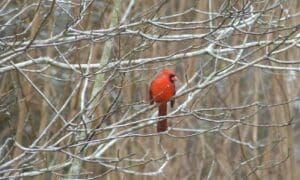In my hometown, our old, red brick library was imploded a couple of years ago and a glistening, modern marvel of gray block and glass was raised.
Architecturally, I am not attracted by the cover of the book but it is not the brick and mortar to which I owe allegiance. It’s the institution and what it meant to the little girl from Rural Route One.
By the time I was four, I could read. When I ran out of books at our house and from the Little Golden Books rack at the A&P, Mama took me to the library. In those days, it was in the dank basement of the old courthouse but it was majestic and regal to me. It opened an endless world and, in a short time, I was soon winning reading awards and getting my name in the newspaper.
The bookmobile stopped at our house and I was first on board even though Mama had to lift me up to the first step so I could climb into the space that smelled heavenly of ink and paper. That library — that wonderful library — transported me to Civil War-era Massachusetts with the March sisters, to Brooklyn, New York, with Francie Nolan, to Alabama with Scout Finch, and gave me hundreds of hours of reading with juvenile biographies and one entire summer filled with Scarlett O’Hara.
From the country, I took myself into town awhile back for appointments that were spaced far enough apart that it wasn’t worth a 45-minute round trip back to the Rondarosa, so I decided to spend the time in the new library, my old friend.
It is laid out much like the old one, with a similar, winding staircase and the books I enjoy — primarily history and biographies — are still situated in the same rows.
Here’s something I never do: look for myself.
I don’t look online, in book stores, or at libraries. That’s looking for trouble. As I was perusing Southern nonfiction, though, it became obvious: my books weren’t positioned in the groupings of similar books.
“My Life In The Pits” was not with the NASCAR books. My trilogy of “What Southern Women Know” — two of which were bestsellers and one which, astoundingly, has remained a steady seller for Penguin Putnam for 21 years (and was celebrated with a 20th anniversary edition) — were not with other Southern women books. I didn’t even bother to look for my novel that had been made into a movie.
“Do you have a section of regional or cultural authors?” I asked the nice librarian.
She stood up from her desk, walked to where I had been browsing and replied, “Not really. Is there a particular author you’re looking for?”
“Ronda Rich.”
“Who?”
I repeated the name slower and, bewildered, she shook her head. “Let me do some checking.”
Y’all, it gets worse from here.
“Thank you.” I walked over to a cushioned booth in a sunny area, sat down, and started to work. The librarian did not forget me — though she had no idea who I was — because she returned in a few minutes with a list she had downloaded and printed out. At the bottom of the page, she had written, Georgia Center For The Book and its website.
“Perhaps this will help,” she said as she handed me several pages of Georgia authors listed alphabetically. Unless, I missed it, I wasn’t listed there, either. This is a perfect example of why you should never go looking for yourself.
Later, I was telling a good friend about my comeuppance. She’s an author, too. In fact, it’s fair to say that she’s a household name. She threw back her head and laughed uproariously — not to shame me but because she thought it was absurd.
“I wouldn’t laugh if I were you,” I cautioned with a smile.
Trying to catch her breath, she asked, “Why?”
“Because you’re not on the list, either.”
[Ronda Rich is a multi-best selling author of several months. Visit www.rondarich.com to sign up for her free weekly newsletter.]













Leave a Comment
You must be logged in to post a comment.